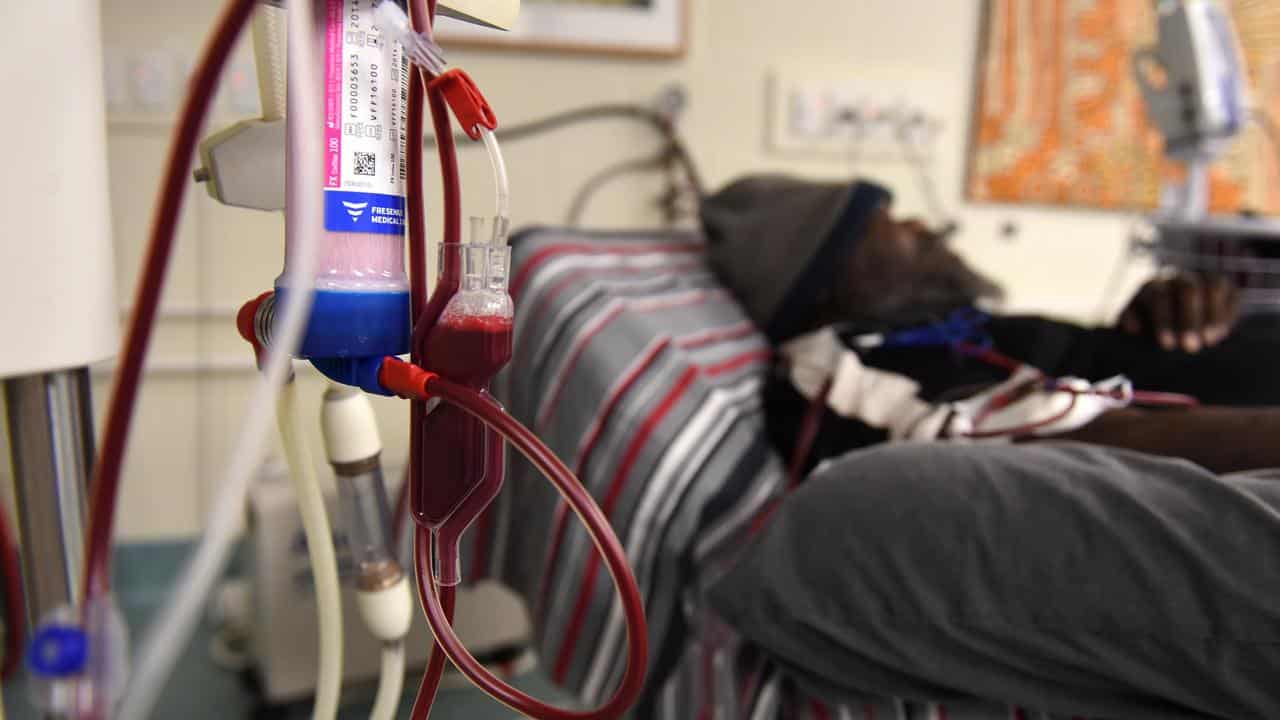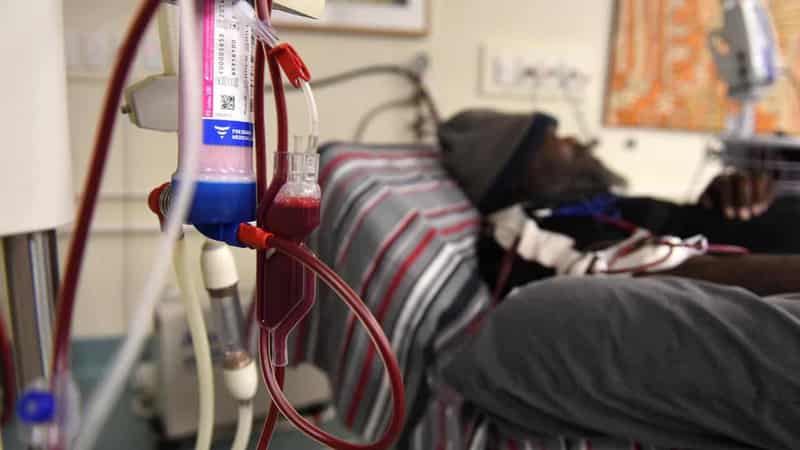
With chronic kidney disease projected to be the fifth leading cause of death worldwide by 2050, advocates are calling for radical action to end Australia’s dependence on outdated dialysis.
Despite its life-preserving role, dialysis has changed little in half a century and remains a time-consuming and invasive treatment, Kidney Health Australia says.
“While other technologies and treatments have advanced enormously, dialysis has barely evolved in decades, and that’s unacceptable,” chief executive Chris Forbes said.
“We need a fresh approach that offers real hope to the thousands of Australians enduring this burdensome ongoing treatment.”
By 2050, the group wants better early detection to diagnose kidney disease, which will enable treatment and access to new medications that can slow its progression and help patients avoid ever needing dialysis.
Kidney Health Australia also wants more research to help develop new treatments and technology that improve outcomes and patient quality of life.
The group also says more living kidney transplants to reduce long-term reliance on dialysis will be needed.
“We are pushing for a revolution in kidney disease treatment and support, aiming to give people back their time and their lives," Mr Forbes said.
"Our vision is to bring an end to the burden of dialysis and leverage new and existing innovations.
"Now is the time for radical change.”
Mr Forbes acknowledged that more dialysis treatment units would be needed in the short term to deal with the current demand for services.
He also said that in the long term, dialysis would likely continue to be required for medical emergencies or as a stopgap to transplants or other innovative treatments.
About two million people are affected by chronic kidney disease in Australia, including 1.8 million who are unaware they are living with the condition, Kidney Health Australia said.
The disease also affects about 850 million people worldwide, or more than 10 per cent of the population, according to the Medical Advisory Council of the Global Patient Alliance for Kidney Health.
In Australia, Aboriginal and Torres Strait Islander people, especially those who live in remote communities, have a higher risk of developing chronic kidney disease and have worse health outcomes than other groups.
The disease and the deaths it causes are growing worldwide due to aging, population growth, and an increase in risk factors such as diabetes and hypertension.
In 1990, chronic kidney disease was the 18th leading cause of death worldwide, increasing to 9th in 2019, and it is projected to be 5th by 2050.









